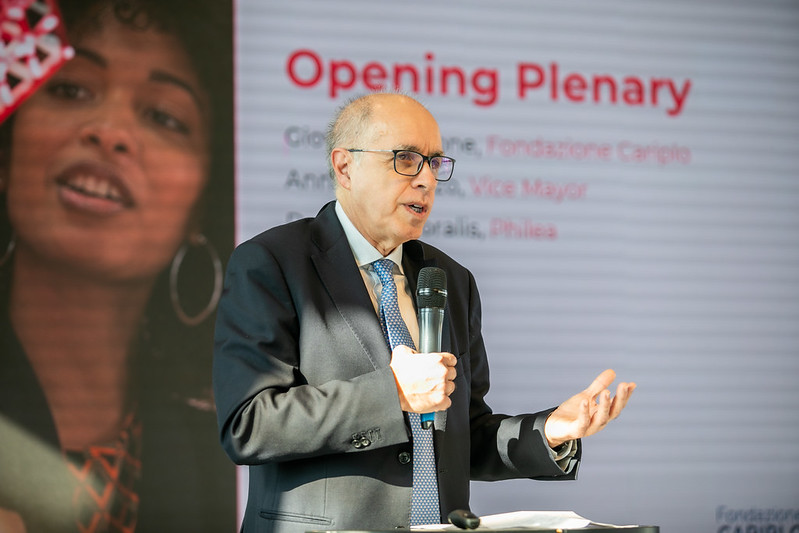Giovanni Azzone cuts a sharp figure. The spectacled and suited president of the Cariplo Foundation, one of Italy’s biggest foundations, is softly spoken – but has big ambitions. With an endowment of 9 billion euros, Cariplo is plugging the gap between public and private at a critical time in Italy. Or, in his words, the foundation is ‘a gateway between the private world, public administration, and the third sector’, bringing ‘local and global level decision making’ in the same spaces.
The Cariplo Foundation (or better known as Fondazione Cariplo) was created in 1991 at a time when regional savings banks were required to split into a nonprofit foundation alongside commercial banking. It is a foundation rooted in a very Italian locality. Working with local communities doesn’t stop Azzone from thinking big, or what he calls, ‘enlarging boundaries’.
‘We need to be in a good region, that is in a good country, that is in a good continent. But to become so, we need to open our minds about what’s going on in the rest of Italy and especially in Europe,’ he told Alliance.
‘You cannot say Lombardy is a nice region when, at the same time in the south of Italy, we have a lot of inequality. We must move together,’ says Azzone.
One sustained focus is affordable housing.
Before the turn of the millennium, Fondazione Cariplo tackled social housing, calling on nonprofits to increase social housing supply and temporary support services for vulnerable people. The Foundation itself has granted nearly €65 million grants, experimenting with new models of housing welfare.
Fondazione Cariplo also spearheaded the launch in 2006 of the first Italian social housing fund, called ‘Abitare Sociale 1 Fund’. That Fund in turn inspired the creation of the National Social Housing Investment Fund. Thanks to Cariplo, the Italian region of Lombardy has experienced the largest expansion of social housing over the last two decades.
Azzone won’t rest on his laurels. Widening social gaps between communities is a concern for Azzone and his foundation. Italy’s rural communities in particularly are fast fragmenting, sometimes even disappearing.
Dissatisfaction among Italian youth and an ageing population remain long term problems, felt from northern Lombardy down to the southern Sicilian coast.
‘We want to support an alliance between different generations,’ says Azzone. One such measure is bridging the digitilsation divide between the haves and the have-nots.
The Foundation also deals with food scarcity, providing large projects to plug the poverty gap seen ‘even in a top city like Milan’.
Where all these issues meet into one connecting point is climate and depopulation.
‘People are moving away (from rural Italy) because they can’t the economic opportunities to live there. And the effect of that is that the environment is not supported anymore, because you don’t have people who can take care of the land,’ explains Azzone.
That is leading to landslides, floods and climate disasters. Supporting communities to stay alive through adaptation; ‘smart working’ by being able to work remotely, and revamping ‘jobs of the past’ in agriculture are pivotal.
Tackling such global problems may require local solutions. And the local is, Azzone reflects, a fundamental core of Italian philanthropy.
‘Italy is a country with one million different hats. Small family businesses became rich and so wanted to give something back. That’s not visible and clearly understandable from the outside,’ says Azzone.
Corporate Foundations are becoming ‘increasingly important’ but remain at an embryonic stage.
Fundamentally, Cariplo cares for its communities. Not much then has changed since its days as a banking hub for the villages and towns of Lombardy.
Shafi Musaddique is the news editor of Alliance magazine.




Comments (0)